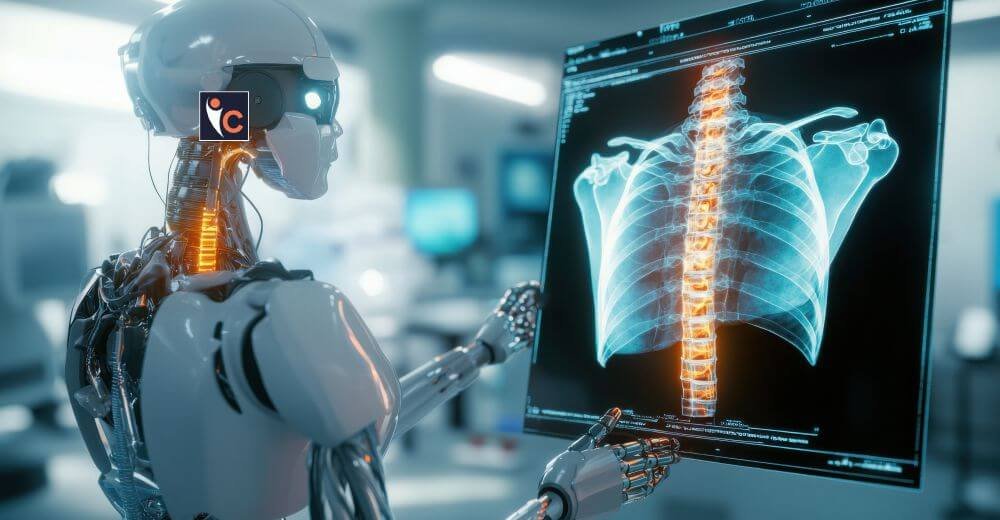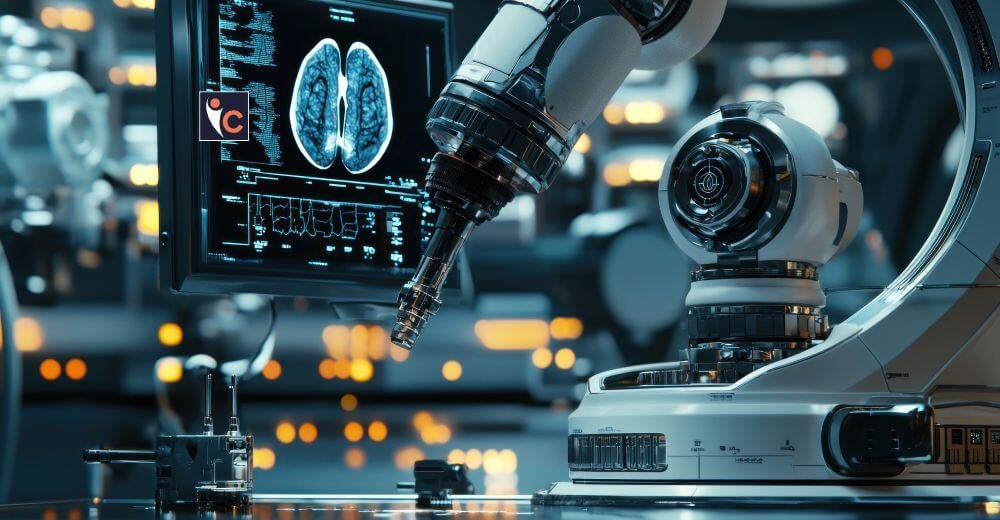Brain Health Reimagined
During the past years AI and robotic systems introduced critical changes across medical practice particularly in the field of neurosurgery. The advancement of neurosurgical techniques demonstrates that these technological advancements represent an enduring paradigm which ensures precise brain procedures and enhanced treatment results and novel brain healthcare strategies.
This article will take you through the advancements shaping the future of neurosurgery!
The Role of AI in Neurosurgery
The diagnosis along with planning of neurosurgical procedures now heavily depends on AI technology. Machine learning algorithms transform large medical records and imaging result data alongside genetic information into knowledgeable decision-making tools for neurologic specialists. The identification of brain tumors alongside neurological conditions occurs earlier because algorithms analyze MRI scans for tiny patterns that humans may not see. Signal processing on vast databases enables doctors to select surgery plans suitable for individual patients thereby advancing neurosurgical practices significantly.
AI predictive analysis methods support surgeons both before operations and after surgeries. Using AI algorithms to examine patient information enables the prediction of surgical hazards together with potential complications so surgeons can make better preparation plans. This capability would improve both the safety of procedures and lead to better patient recovery rates. Neurosurgery will achieve a transformational milestone in the future.
Robotics: The New Surgeons in the OR
Robotics has achieved remarkable progress through which operating room robots now provide neurosurgeons with unmatched precision. The exact procedures of deep brain stimulation alongside tumor resections and spinal surgical intervention benefit from robotic system assistance. Robotic systems designed with high performance control and dexterity possess the capability to execute movements that exceed human control thus protecting surrounding tissues from damage.
Robotic systems are also being developed to help with minimally invasive techniques, an area that will increasingly dominate neurosurgery in the near future. This form of intervention ensures shorter recovery periods and minimal chance of infection and is more accepted by many patients. Robotics with AI applications opens up exciting futures for neurosurgery and ongoing research to unlock even more applications.
Improving Surgical Training
As AI and robotic technologies advance, they are also changing the way neurosurgeons are trained. Using an immersion of VR and AR simulations, power by AI, brings into practice an innovative way of learning where surgical residents can practice intricate procedures without putting patients at risk. The systems can learn based on the residents’ progress with tailored feedback throughout the training.
Ensuring new generations of neurosurgeons are proficient not only in traditional techniques but also in sophisticated technologies that will form the basis of future neurosurgery is made possible by embedding AI in surgical training. It is imperative for continuing education to evolve to meet this need in order to preserve safety standards and allow surgical procedures to remain abreast of technological changes.
Telemedicine and Remote Neurosurgery
One aspect under which the futures of AI and robotics come through in terms of neurosurgery is via telemedicine, thereby allowing a neurosurgeon to even confer with their patient and the respective colleagues for discussion from farther geographical locations – so far long constrained by borders while seeking exclusive specialty care. Since AI incorporation with neurosurgeons does get them actual live data about procedures, this offers them potential prospects for more and more remotely-performed diagnosticians also across the field.
This is particularly advantageous in underserved areas where neurosurgical expertise may be scarce. As telemedicine continues to integrate with AI and robotic systems, it stands to democratize access to neurosurgical care, ensuring that more patients receive timely and effective treatment, regardless of their location.
The Future of Neurosurgery: Ethical Considerations
Although vast and promising for neurosurgery’s future, these possibilities bring in important ethical concerns with them. The issues that surface in this context include data privacy, informed consent, and the risk of algorithmic bias. Robust regulatory frameworks and ongoing oversight will continue to address these concerns as these technologies advance and their benefits are realized responsibly.
Conclusion
The future of neurosurgery looks brighter than ever, built on the promising capabilities of AI and robotics. Technologies are now being used to enhance traditional surgery rather than replace it. How we approach the care of our brain will see fundamental changes; the diagnostic and training methodologies shall improve, so shall the robotic precision, hence better surgical intervention and safety.
The journey into the future of neurosurgery has just begun. Continued investment in research, development, and ethical considerations will pave the way for groundbreaking innovations that promise to redefine the landscape of brain health, ultimately improving patient care and outcomes. The horizon is rich with possibilities, and as we embrace these advancements, we are optimistic about the future of neurosurgery and its impact on global health.










